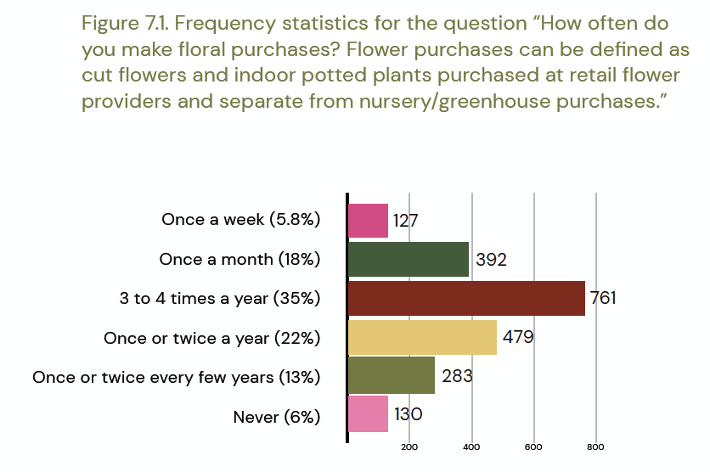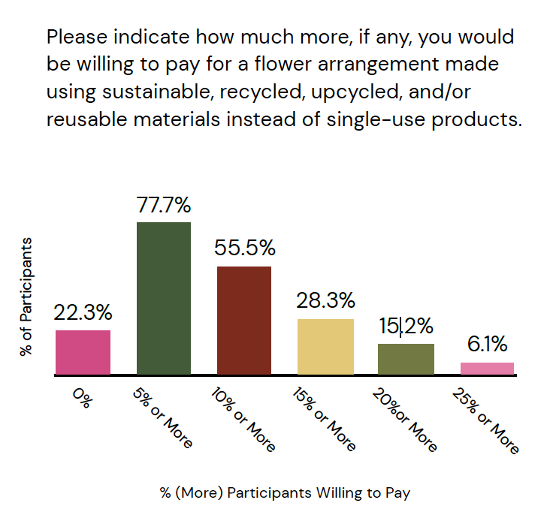
Image courtesy of the Floral Marketing Fund
A new consumer research study has found that consumers are willing to pay more for flowers from retailers practicing sustainability within their businesses.
“U.S. consumer perceptions & willingness to pay for sustainable environmental practices in the floral industry,” have been released. The study was led by researchers at Mississippi State University (MSU) and Texas State University (TSU).
The project was funded by Floral Marketing Fund, alongside co-sponsors BloomNet, a floral services company serving more than 5,000 local florists across the country, and Syndicate Sales, a leading manufacturer/supplier of floral hardgoods for retail florists.
The primary purpose of the study was to gain an understanding of consumer perceptions as they relate to retail floral providers’ sustainable and environmentally friendly practices.
Key findings include insights into consumers’ willingness to make purchases and pay additional costs for flowers from retailers practicing sustainability within their businesses. The data also show where and how often consumers are marking floral purchases, with a majority purchasing flowers three to four times a year (35.0%) to once or twice a year (22.1%) in person (65.3%).
Focuses within the data include locally sourced flowers, organic, fair-trade, composting and multi-use materials. Discoveries include trigger phrases like “locally sourced” to be impactful when consumers make purchasing decisions. Retailers can use these findings to better promote their sustainable practices to consumers.
Consumers are keeping sustainability in mind, and 50% or more of the participants indicated a willingness to pay 10% or more for all of the sustainable attributes presented in the study. The participants were asked to rank the list of environmental attributes from most important to least important, showing which sustainable practices matter the most to each consumer group.
Additionally, the final report includes findings explored by age, education, income, gender and ethnicity to give more detailed insights for retailers to use when considering their target customer base.
The study collected data through an online survey, providing a sample of more than 2,000 responses that align with overall demographics of the U.S. The three co-sponsors and additional industry leaders provided input on the survey questions and layout through a collaborative effort to ensure the most meaningful results for the industry. The survey instrument consisted of 31 questions within four different sections and was assembled using past surveys that explored consumers’ preferences and purchasing habits for floral products and views toward environmental certifications and awards.
The results and consumer data will help floral providers make decisions on structuring their businesses to become more environmentally friendly in ways consumers most care about.
Latest from Garden Center
- Boxed in: 2025 Axiom Gardening Outlook Study explores big box vs IGCs
- The Growth Industry Episode 3: Across the Pond with Neville Stein
- Trends: Proven Winners 2025 perennial survey shows strong demand
- Online registration opens for the 2025 Farwest Show
- Sustainabloom launches Wholesale Nickel Program to support floriculture sustainability
- Society of American Florists accepting entries for 2025 Marketer of the Year Contest
- American Horticultural Society welcomes five new board members
- Color Orchids acquires Floricultura Pacific, becoming largest orchid supplier in U.S.









